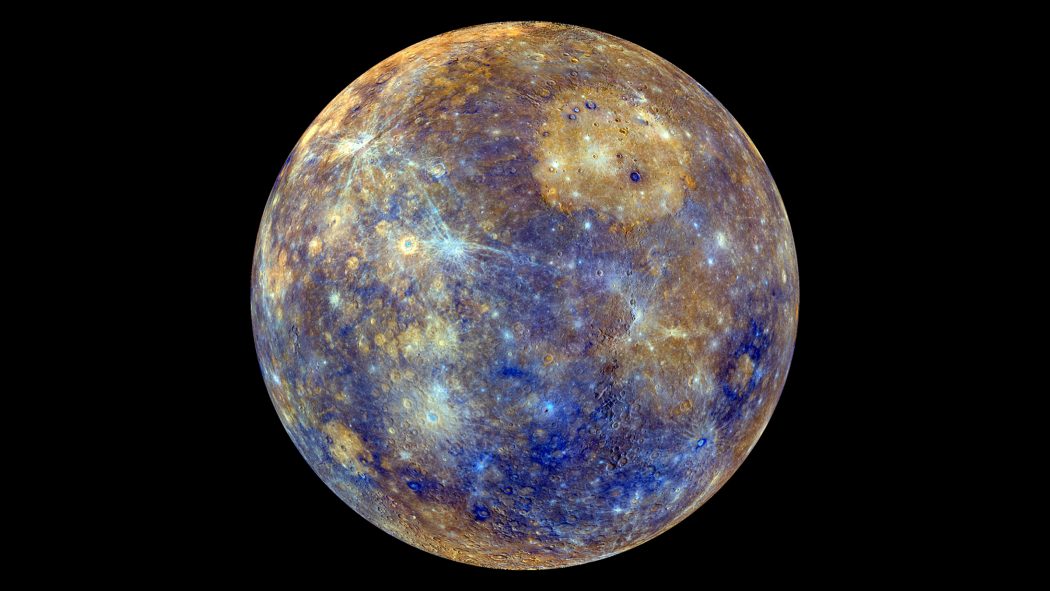Just because Mercury spins out of control doesn’t mean your life has to.
By Rachel Roberts Mattox, CMO Moon + Mercury

Shuttle photo of earth’s auroras. Courtesy NASA.
“As above, so too below.” If you can wrap your head around this phenomenon, you understand the basic gist of astrology, which generally assumes that whatever is going on up in the cosmos will effect us earthlings in some way, shape or form. Take the moon’s rhythmic effect on our ocean tides, for example. The moon’s gravitational force pulls ocean water upwards in the areas of earth that are facing the moon. This is known as high tide. Simultaneously, water drains in other areas that are not facing the moon, resulting in low tide in those regions. Chances are you know how this affects the surf at your local break. Regardless of coast or continent, tides will flow in and flow out around two times a day, making this one of the most reliable phenomena in the world. So reliable, in fact, that most of us don’t think of it as a phenomenon at all.
It usually lasts a frustratingly long three and a half weeks.
Then there are some real head-scratchers that occur less frequently but have a much more noticeable impact on our lives, like Mercury Retrograde. Ever heard of it? It only happens about four times per year, making it almost forgettable, until it comes around again, always at the most inconvenient time. It usually lasts a frustratingly long three and a half weeks, and leaves annoying mishaps, miscommunications and general mayhem in its wake. And the biggest bummer is that no one is immune to its mercurial ways. We’re all just puppets on the end a cosmic string down here on planet Earth.
Or are we?
First, let’s get a few things straight about Mercury Retrograde. The planet doesn’t actually move backwards. Remember when you were a kid on a road trip, staring out the backseat window, and a car sped past you, making you feel like you were moving backwards? It’s like that. About four times a year, Mercury speeds past earth, kicking up a lot of turbulent dust in its wake. That “dust” can wreak havoc here on earth, because Mercury governs certain functions that help keep our world in order, like communication, listening, speaking, learning, negotiating, buying and selling. Basically, everything we do in a day to survive.
And when Mercury retrogrades, all of these basic functions get scrambled and spin out of control. You may experience this as an endless spinning of the rainbow wheel as your MacBook Air tries to download a file. Or maybe you accepted a job offer for a specific role and title, only to learn that your role and responsibilities abruptly change a few weeks into the new gig. Definitely anticipate unforeseeable miscommunications among colleagues that can lead to embarrassing paper trails and puzzling misunderstandings that require major cleanup once Mercury moves out of retrograde. And don’t be surprised if all the while, you’re feeling emotional, exhausted, frustrated, anxious and a little insecure about relationships, your abilities, and life in general. Mercury is just having his way with us like the prankster he is. But you don’t have to let him get the upper hand. To avoid some of the biggest mishaps, here’s a cheat sheet to live by:
Things that are a hard “no” during Mercury Retrograde
- Signing a lease
- Signing a contract
- Accepting a job offer
- Going on a first date
- Buying a new computer
- Buying a new house
- Launching a website or magazine or publicity campaign
- Publicly speaking in front of a large audience
- Accepting a marriage proposal
- Having elective surgery
- Sending faxes (if you actually still fax)
Since Mercury Retrograde happens about four times a year, and lasts 3 1/2 weeks each time, that’s a quarter out of the year that we’re basically at standstill. And let’s face it, life goes on regardless of what wacky stuff is happening in our solar system. So, how to deal?

Shuttle photo of earth’s auroras. Courtesy NASA.
The (Much) Bigger Picture
When we zoom waaaaay out to get the 40-billion-mile macro view, it may seem like our little lives on our little planet earth are pretty inconsequential in the grand scheme of things. But no matter what larger forces are at play, or how many other intelligent life forms there are in our solar system or galaxies beyond, there’s no denying that we’ve got the goods here on earth. The planet thrives with flora, fauna, mycelium and healthy microorganisms that keep our bodies, environment and planet in balance. Even when we are affected by all sorts of human errors, nature is calibrating to support our survival. Simply put, nature provides everything we need to adapt and evolve, as it has for millions of years.

Courtesy Moon + Mercury
Long before modern medicine, Timothy Leary and Bulletproof Coffee, there were plants. These plants fed us, healed us, strengthened us, and occasionally invited us on an out-of-body magic carpet ride to other realms so we could understand this one better. Over time, we’ve experimented, exploited and branded these plants, but alas, they are still just plants that humbly grow to support our survival. And some of these plants are specifically useful to supporting our sanity during cosmic chaos, like Mercury Retrograde. We call them adaptogens.
Basically, they keep our shit in check so we don’t spin out of control just because Mercury does.
Adaptogens is a fancy word for non-toxic, non-psychotropic plants that help our bodies maintain homeostasis in the face of physical, emotional, psychic and chronic stress. When delivered in powder or tincture form and taken internally, these plant-based remedies regulate our immune-neuro-endocrine system and our hypothalamic–pituitary–adrenal axis, bringing us down if we’re too jacked up, or filling us up if our tank is on empty. Basically, they keep our shit in check so we don’t spin out of control just because Mercury does. The thing about these adaptogens that puts them in a class all their own is that they are non-specific and help the human body resist a wide range of adverse conditions, from environmental pollution to interpersonal disharmony. It’s almost like they grew just to help us deal with crazy cosmic glitches like Mercury Retrograde. Think about it.
The list of Adaptogens is long, and some are easier to find than others. Here’s a handy guide of common, effective adaptogens that will help you maintain vitality, stamina and sanity in the most stressful situations:
- Ashwagandha
- Bacopa
- Codyceps
- Eleuthero
- Ginseng
- He Shou Wu
- Holy Basil
- Mucuna
- Reishi
- Rhodiola
- Schisandra
- Shatavari
Consider this fair warning: Mercury goes retrograde again from February 18 through March 9, 2020. Mark your calendar, don’t plan for any major life events, large purchases or lifelong commitments during this time, and stock up on adaptogens to help you coast through the cosmic chaos. You’re welcome.










